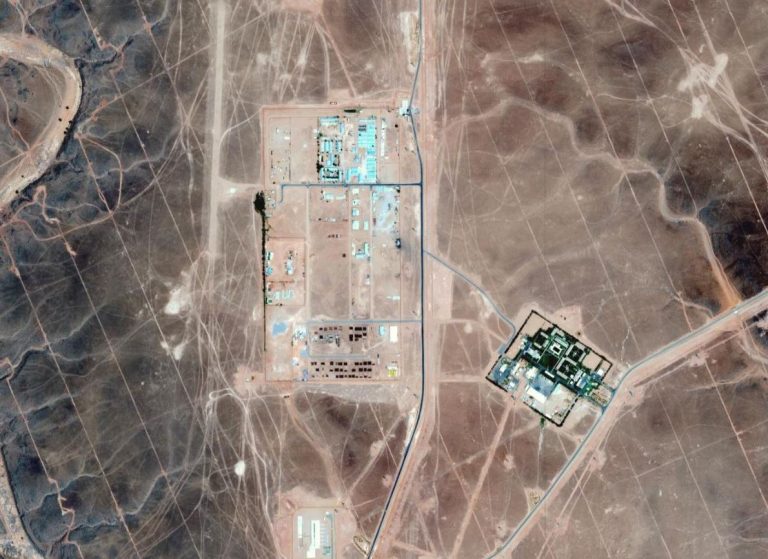At Qabas, we recognise the vital importance of comprehensive research in driving informed decisions and strategic growth. As the number one provider of research services in Libya, we deliver bespoke solutions tailored to the unique needs of our clients across diverse sectors.
Our dedicated team harnesses advanced methodologies and innovative approaches to set industry benchmarks in research excellence. Committed to excellence, we provide insightful data and actionable intelligence that empower businesses and organisations to navigate Libya’s dynamic market landscape with confidence.
Table of Contents
![Best Research Services in Libya [FREE 30-Min Consultation] 1 Top Research Services in Libya Get a 100% Free Quotation](https://qbs.ly/wp-content/uploads/2024/12/Top-Research-Services-in-Libya-Get-a-100-Free-Quotation-1024x575.jpg)
Overview of Research in Libya
Research services in Libya operate within a complex and evolving environment. Political and economic instability, marked by frequent government changes since the early 2010s, poses significant challenges. For instance, the ongoing conflict since 2014 has disrupted market conditions and hindered long-term research initiatives. Economic volatility, characterised by fluctuating oil prices, directly affects consumer purchasing power and investment climates, complicating the planning and execution of research projects.
Data availability and accessibility remain critical issues. Reliable and up-to-date data is scarce, with many industry reports dating back several years. Infrastructure damage from years of conflict hampers the collection and dissemination of information. Additionally, language barriers and bureaucratic procedures further restrict access to existing data sources. As a Libya-based service provider, we prioritise ethical standards, ensuring the integrity and accuracy of our research despite these obstacles.
Our research services encompass various sub-services, including market analysis, consumer behaviour studies, and data analytics. By leveraging advanced methodologies and local expertise, we navigate the challenges of the Libyan landscape to deliver trusted and actionable insights.
Types of Research Services in Libya
We provide a diverse range of research services tailored to meet the unique needs of our clients in Libya. Our expertise spans across various domains, ensuring comprehensive support for informed decision-making.
Academic Research in Libya
Our academic research services support the advancement of knowledge within Libyan universities. We collaborate on libyan-led initiatives, which enhances the research capabilities of higher education institutions. This project includes local training workshops, the development of institutional research agendas, and the examination of national legislative frameworks and funding programs. We prioritize improving coordination between research centers and establishing a national network for collaborative research initiatives. Additionally, we modernize curricula with a focus on postgraduate studies to align with international standards and address the challenges facing Libyan academia.
Market Research in Libya
We offer in-depth market research services to help businesses navigate the Libyan market effectively. Our services include market analysis, consumer behaviour studies, and data analytics. We utilize advanced methodologies to gather and interpret data, providing actionable insights that drive strategic growth. Our team ensures the accuracy and reliability of our research, enabling clients to make informed decisions based on current market trends and consumer preferences.
Scientific and Technical Research in Libya
Our scientific and technical research services support innovation and development across various industries in Libya. We conduct comprehensive studies in fields such as engineering, information technology, and environmental science. Our approach involves rigorous data collection and analysis, ensuring that our clients receive precise and relevant information. By leveraging our technical expertise, we facilitate the development of new technologies and the improvement of existing processes, fostering progress and sustainability within the local context.
![Best Research Services in Libya [FREE 30-Min Consultation] 2 Zuetina Oil Company Key Facts and Overview of Libya's Leading Energy Firm](https://qbs.ly/wp-content/uploads/2024/11/Zuetina-Oil-Company-Key-Facts-and-Overview-of-Libyas-Leading-Energy-Firm-1024x737.jpg)
Leading Research Institutions in Libya
Libya hosts several esteemed research institutions that drive innovation and support national development. These organizations provide essential services and expertise across various sectors.
Universities
The University of Tripoli is a prominent academic institution in Libya. Established in 1957, it has advanced its research capabilities significantly over the years. In 2023, the university entered the QS World University Rankings, securing the 147th position among Arab universities. The University of Tripoli offers diverse research programmes in fields such as engineering, medicine, and social sciences, fostering academic excellence and contributing valuable insights to Libya’s growth.
Private Firms
As a leading private research service provider in Libya, Qabas delivers reliable and ethical research solutions tailored to client needs. Based in Libya, we specialise in market analysis, consumer behaviour studies, and data analytics, utilizing advanced methodologies to ensure accurate and actionable insights. Our commitment to integrity and high standards has established us as a trusted partner for businesses and organisations navigating the Libyan market. Qabas leverages local expertise to support strategic decision-making and drive sustainable growth across various industries.
Challenges in the Libyan Research Sector
The research sector in Libya encounters multiple obstacles that impede its growth and effectiveness. Prominent challenges include funding issues and complex political and social factors.
Funding Issues
Economic instability in Libya, driven by ongoing political strife and fluctuating oil prices, severely impacts research funding. Since the early 2010s, reductions in oil production and declining global oil prices have strained public finances. As a result, investments in higher education and research institutions have diminished, limiting resources available for innovative projects and academic advancements. This financial constraint hampers the ability to sustain long-term research initiatives and acquire essential infrastructure.
Political and Social Factors
Libya’s political landscape has been marked by conflict and uncertainty since 2014, disrupting market conditions and hindering research activities. The persistent instability affects data availability and accessibility, as well as damages critical research infrastructure. Social factors, including public safety concerns and limited collaboration opportunities, further challenge the continuity and quality of research services. Navigating these complexities requires resilient strategies and a steadfast commitment to maintaining ethical standards.
![Best Research Services in Libya [FREE 30-Min Consultation] 3 Camco Libya Leading Innovator in Libya's Energy Sector](https://qbs.ly/wp-content/uploads/2024/11/Camco-Libya-Leading-Innovator-in-Libyas-Energy-Sector-1024x575.jpg)
Opportunities for Growth
We identify key opportunities for growth within Libya’s dynamic economic landscape. Our research supports strategic advancements in emerging sectors and fosters international collaborations.
Emerging Sectors
Libya’s economy is expanding beyond oil and gas, with renewable energy, agriculture, and infrastructure development leading the way. Renewable energy initiatives launched in 2020 target a 30% reduction in fossil fuel reliance by 2030. The agricultural sector benefits from Libya’s climate, enabling the cultivation of high-value crops such as olives and dates, projected to increase by 15% annually. Infrastructure projects, including the expansion of the Tripoli International Airport and the development of new urban areas, are crucial for economic stability. Our services provide detailed market analysis, feasibility studies, and data-driven insights to support investments and development strategies in these sectors.
International Collaborations
International collaborations enhance Libya’s research capabilities and attract foreign investments. Since 2018, we have partnered with European universities on sustainable development and technology integration projects, facilitating knowledge transfer and innovation. These partnerships grant access to advanced research methodologies and global expertise. Additionally, our market insights assist Libyan businesses in navigating international markets, promoting economic integration. By adhering to strict ethical standards, we ensure all collaborations maintain integrity and transparency, reinforcing our trusted reputation in the industry.
Conclusion
Partnering with Qabas means accessing top-tier research services tailored to Libya’s unique landscape. We navigate challenges with expertise ensuring you have the insights needed for success. Our commitment to ethical standards and innovation drives us to deliver reliable data that supports your strategic goals. Together we can harness opportunities in emerging sectors and contribute to Libya’s growth. Let us help you make informed decisions and achieve sustainable outcomes.
Frequently Asked Questions
What is the importance of research for businesses in Libya?
Comprehensive research enables businesses in Libya to make informed decisions and strategise effectively. It provides valuable data and insights into the local market dynamics, consumer behaviour, and industry trends. This information is crucial for identifying opportunities, mitigating risks, and planning sustainable growth. By understanding the complex and evolving environment in Libya, businesses can navigate challenges such as political instability and economic volatility, ensuring their strategies are resilient and adaptive.
What challenges do research services face in Libya?
Research services in Libya operate within a complex environment marked by political and economic instability. The ongoing conflict since 2014 has disrupted market conditions and hindered long-term research initiatives. Economic volatility, particularly fluctuating oil prices, complicates planning and execution. Additionally, issues like data availability, accessibility, and infrastructure damage impede research efforts. Social factors, such as public safety concerns and limited collaboration opportunities, further challenge the continuity and quality of research services in the country.
How does Qabas ensure the integrity and accuracy of its research?
Qabas prioritises ethical standards to maintain the integrity and accuracy of its research. Their team employs advanced methodologies and innovative approaches to collect and analyse data meticulously. By adhering to strict ethical guidelines, Qabas ensures that the research outcomes are reliable and unbiased. This commitment to excellence allows them to provide trusted insights that businesses and organisations can depend on for strategic decision-making and sustainable growth in Libya’s evolving market.
What sub-services does Qabas provide to its clients?
Qabas offers a diverse range of sub-services tailored to meet the unique needs of clients in Libya. These include market analysis, which assesses industry trends and opportunities; consumer behaviour studies that explore purchasing patterns and preferences; and data analytics for in-depth information analysis. Additionally, Qabas conducts feasibility studies for infrastructure and renewable energy projects, supports academic research initiatives, and provides scientific and technical research services to foster innovation across various industries.
How does Qabas support businesses in navigating the Libyan market?
Qabas assists businesses in navigating the Libyan market by providing detailed market analysis and feasibility studies. Their research offers insights into market trends, consumer behaviour, and competitive landscapes, enabling businesses to make informed strategic decisions. Qabas leverages local expertise and advanced methodologies to deliver actionable recommendations, helping businesses identify opportunities, mitigate risks, and plan effectively in Libya’s dynamic economic environment.
What role do research institutions like the University of Tripoli play in Libya’s development?
Research institutions like the University of Tripoli are crucial for Libya’s development, driving innovation and supporting national growth. The University of Tripoli has significantly advanced its research capabilities, earning a spot in the QS World University Rankings in 2023. Such institutions collaborate with private research providers like Qabas to enhance academic research, develop skilled professionals, and contribute to scientific and technical advancements. Their efforts are essential for fostering a knowledge-based economy and achieving sustainable development goals in Libya.
What are the key growth opportunities in Libya’s economic landscape?
Libya’s economic landscape presents several growth opportunities, particularly in emerging sectors such as renewable energy, agriculture, and infrastructure development. Renewable energy initiatives aim to reduce fossil fuel reliance by 30% by 2030, while the agricultural sector is projected to grow by 15% annually. Infrastructure projects, including the expansion of Tripoli International Airport, are vital for economic stability. These sectors offer significant potential for investment and development, supported by detailed market analysis and feasibility studies provided by Qabas.
How does international collaboration benefit Libya’s research capabilities?
International collaboration enhances Libya’s research capabilities by facilitating knowledge transfer and innovation. Partnerships with European universities since 2018 have allowed Libyan researchers to access advanced resources and expertise, improving the quality of research. These collaborations attract foreign investments, support the development of sustainable projects, and help Libyan businesses navigate international markets. By working with global partners, Libya can strengthen its research infrastructure, promote academic excellence, and drive economic growth while maintaining ethical standards.



